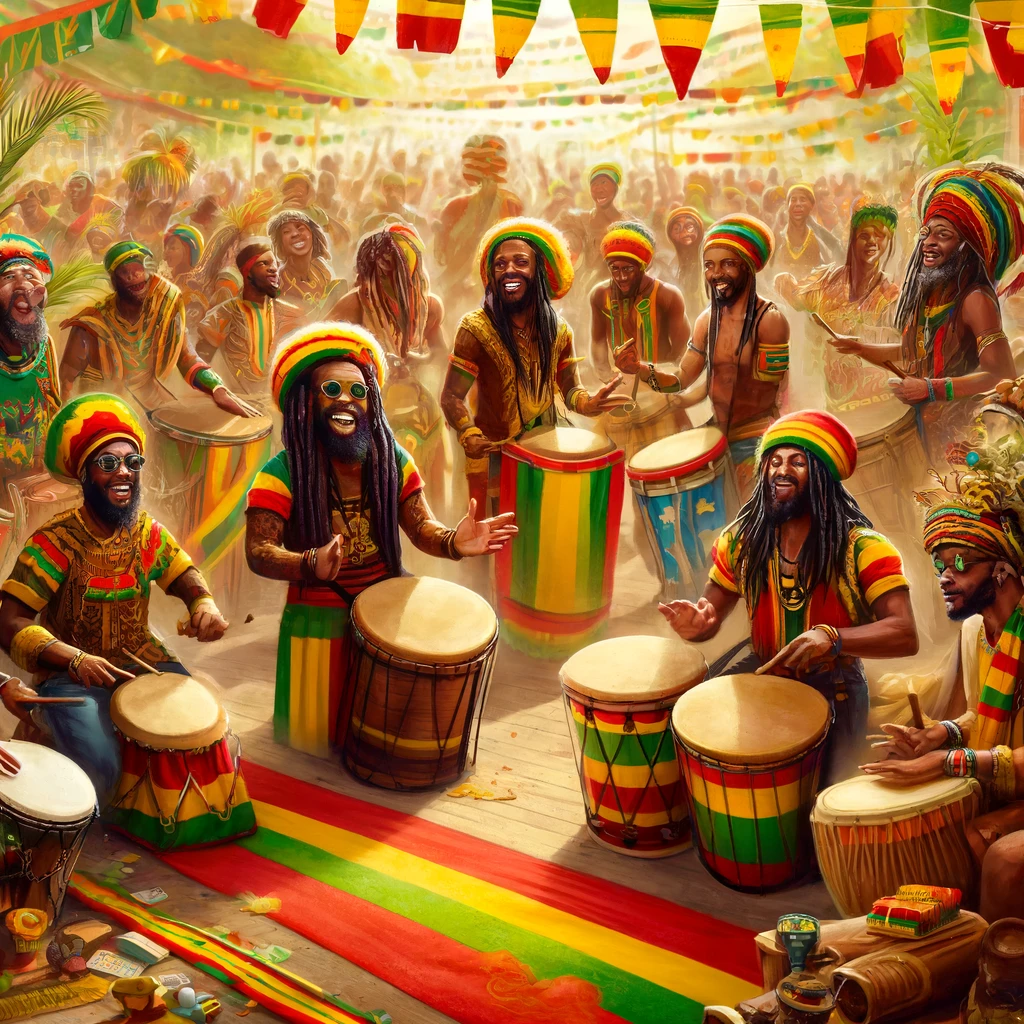Introduction: Rastafari culture is rich with vibrant festivals and celebrations that honor its history, spirituality, and community. These events are not just moments of joy and festivity but also times of deep spiritual reflection and unity. Let’s explore some of the key Rastafari festivals and celebrations that bring the community together in a powerful display of faith, culture, and resilience.
Grounation Day: Grounation Day, celebrated on April 21st, marks the visit of Haile Selassie I to Jamaica in 1966. This day is one of the most significant in the Rastafari calendar, symbolizing the recognition of Selassie as a divine figure and the connection between Jamaica and Ethiopia. The celebration involves Nyabinghi drumming, chanting, and communal gatherings where the teachings of Haile Selassie I are shared and reflected upon.
Emancipation Day: Observed on August 1st, Emancipation Day commemorates the abolition of slavery in Jamaica in 1834. For Rastafarians, this day is a powerful reminder of the struggles for freedom and the ongoing fight for justice and equality. Celebrations include cultural performances, educational events, and rituals that honor the ancestors and their sacrifices.
Marcus Garvey Day: Celebrated on August 17th, Marcus Garvey Day honors the birth and legacy of Marcus Garvey, a prominent figure in the Rastafari movement. Garvey’s teachings on black empowerment, unity, and repatriation to Africa are central to Rastafari beliefs. The day is marked by parades, speeches, and cultural activities that promote Garvey’s vision and inspire the community to continue his work.
Nyabinghi Celebrations: Nyabinghi celebrations are spiritual gatherings that can occur on various significant dates within the Rastafari calendar. These events are characterized by extended drumming sessions, chanting, and communal prayer. The rhythmic beats of the Nyabinghi drums are believed to have a healing effect and are used to call upon the spirit of Jah. These gatherings reinforce community bonds and serve as a time for collective spiritual rejuvenation.
Haile Selassie I’s Birthday: Haile Selassie I’s birthday, celebrated on July 23rd, is a day of great reverence for Rastafarians. It is a time to honor the Emperor’s contributions to Ethiopia and the world, as well as his spiritual significance in the Rastafari faith. The celebrations include religious services, cultural performances, and community feasts, all dedicated to reflecting on Selassie’s life and teachings.
Ethiopian Christmas: Ethiopian Christmas, known as Gena, is celebrated on January 7th. For Rastafarians, this day is a blend of Ethiopian tradition and Rastafari spirituality. The celebrations involve attending church services, feasting, and engaging in communal activities that reflect the joy and significance of the birth of Christ. It is a time of renewal and recommitment to living a life of righteousness and love.
Closing Thoughts: Rastafari festivals and celebrations are a testament to the community’s rich cultural heritage and deep spiritual roots. These events provide an opportunity to honor important historical figures, celebrate freedom and unity, and strengthen communal bonds. By participating in these festivals, Rastafarians reaffirm their faith, culture, and commitment to living in harmony with Jah’s teachings. Each celebration is a powerful expression of the enduring spirit and resilience of the Rastafari community.

